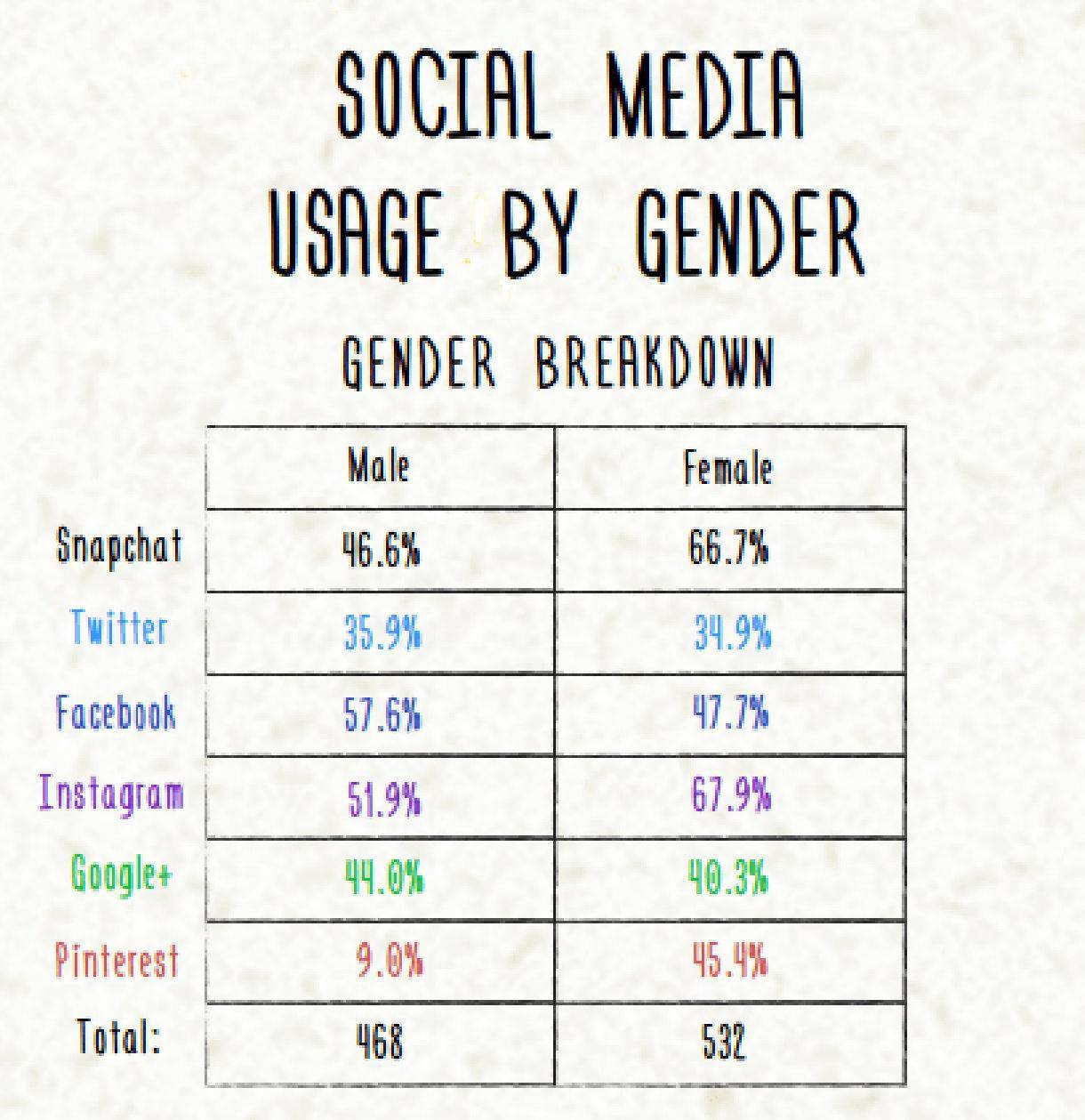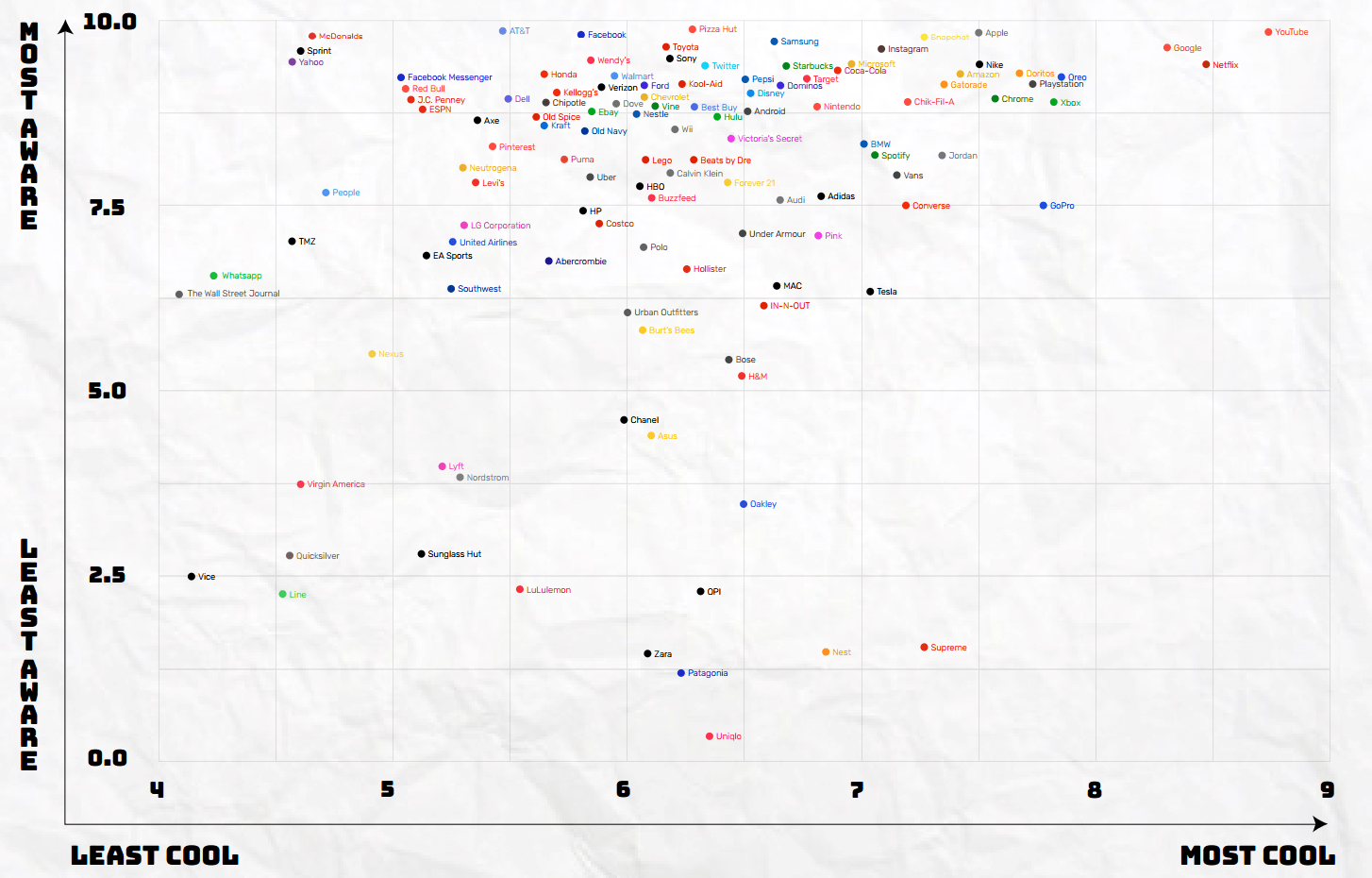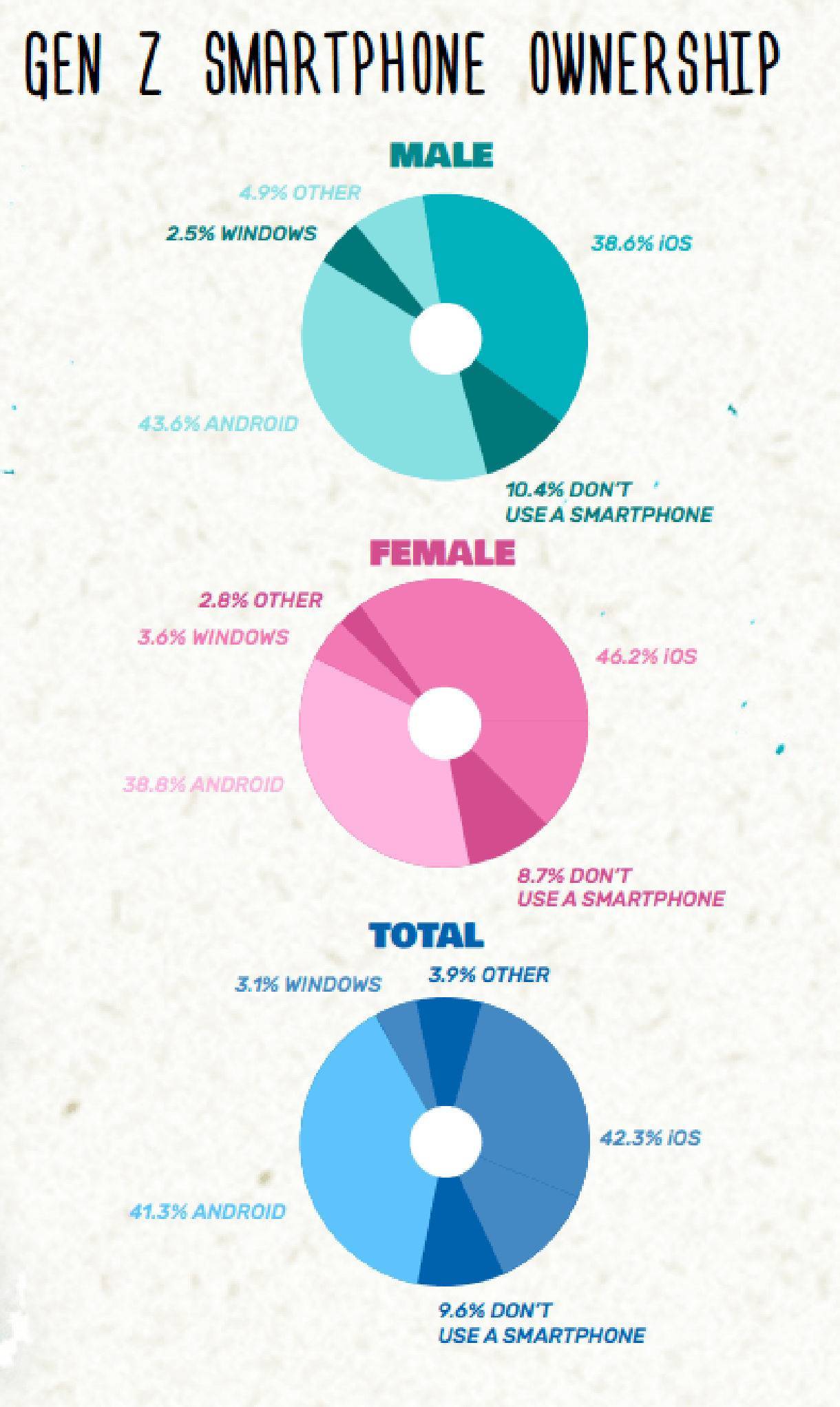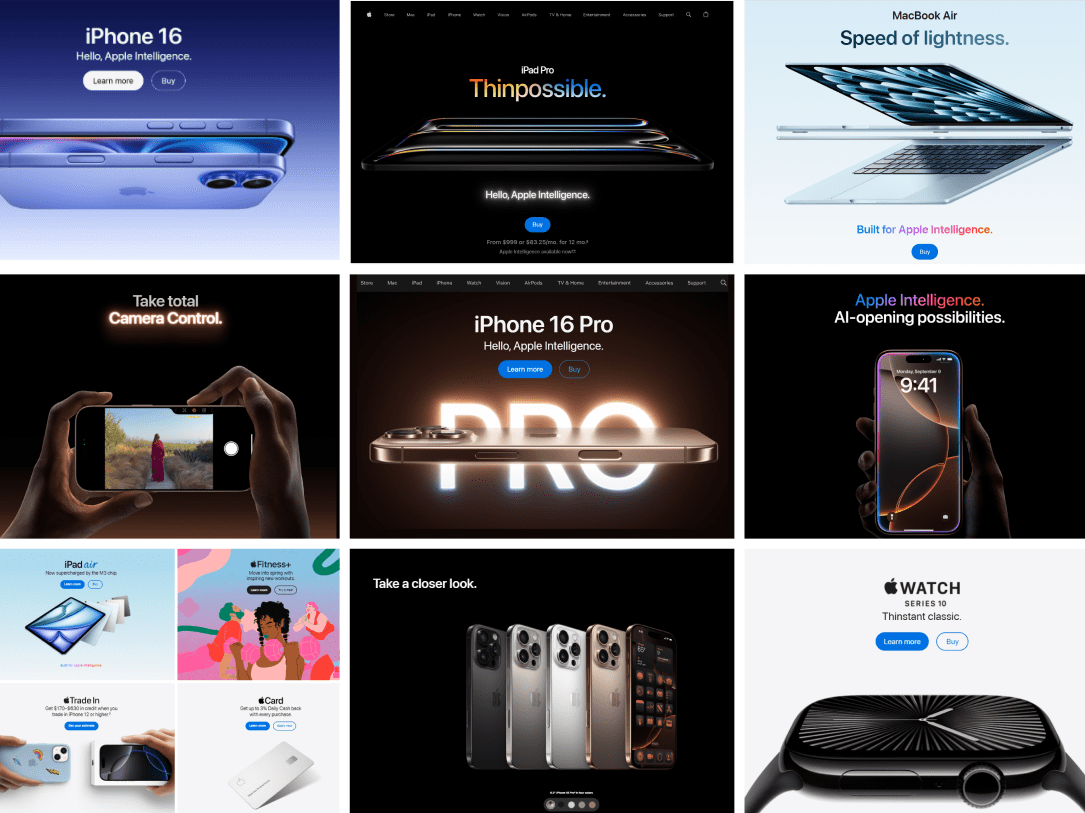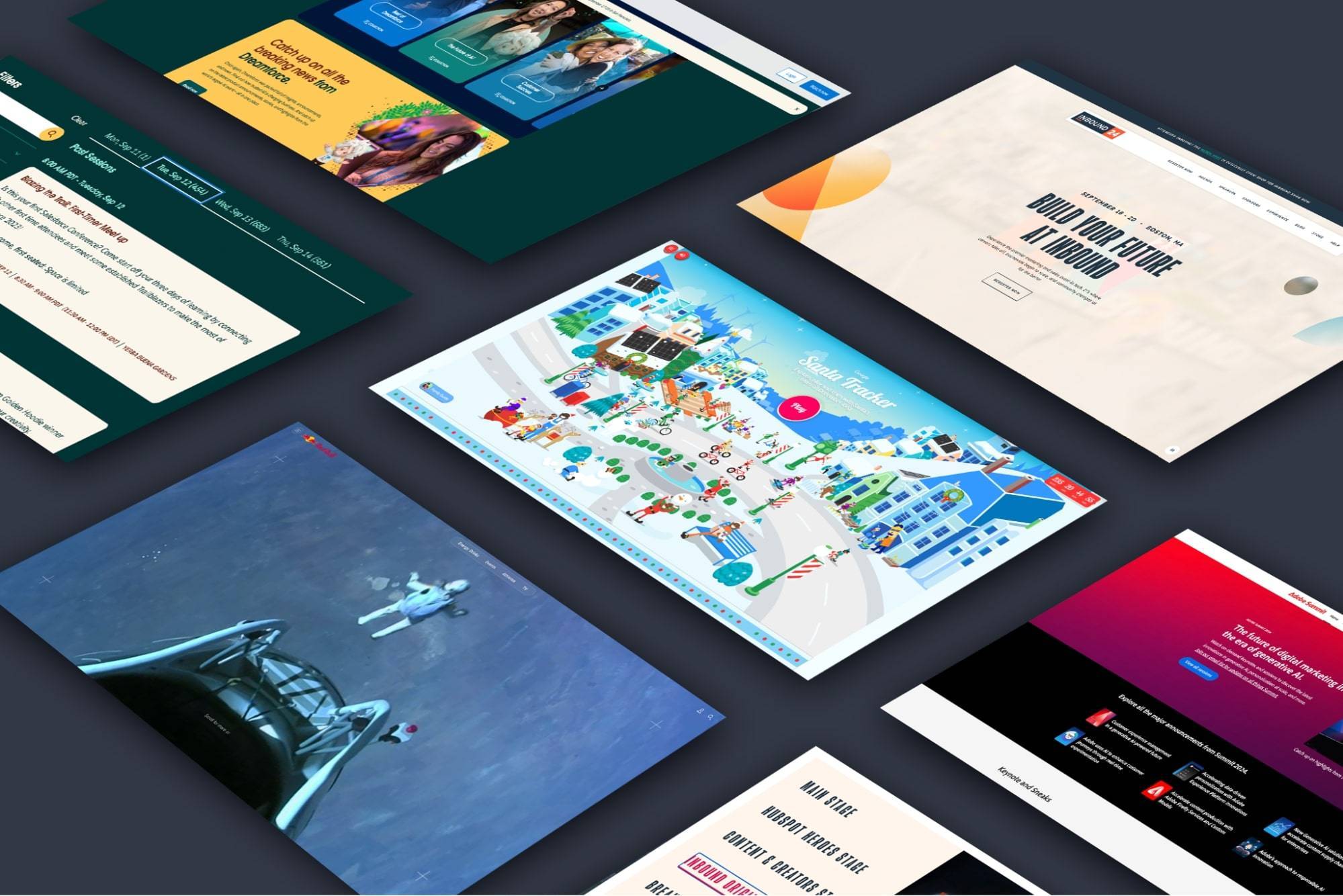

Marketing to Generation Z
On Monday, Google released It’s Lit, the results of a study into 13-17 year old American teenagers. The study looked to “provide a glimpse into the world of teens in the US through the lens of what they find cool.” The study has met some criticism, considering Google’s businesses and brands all performed extremely well in the surveys. Still, the results provide an interesting glimpse into the digital landscape for “Generation Z.”
#1 Social Media usage varies widely by gender.
The study found large differences between male and female 13-17 year olds. Pinterest is used by more than 45% of Generation Z females, but only 9% of males. On the other hand, male teenagers are significantly more likely to be on Facebook than their female counterparts.
#2 Teens value “information, stimulation, and connection.”
It’s a connected world. Generation Z-ers are not passive. They want to engage, interact, and learn from the brands they follow. Businesses that are active online, interacting with users rather than just passively sharing photos and videos, are likely to see the most success with this demographic. Moreover, brands that encourage their customers to interact with each other will see the greatest success. Building brand communities will increasingly be key to digital success in the coming years.
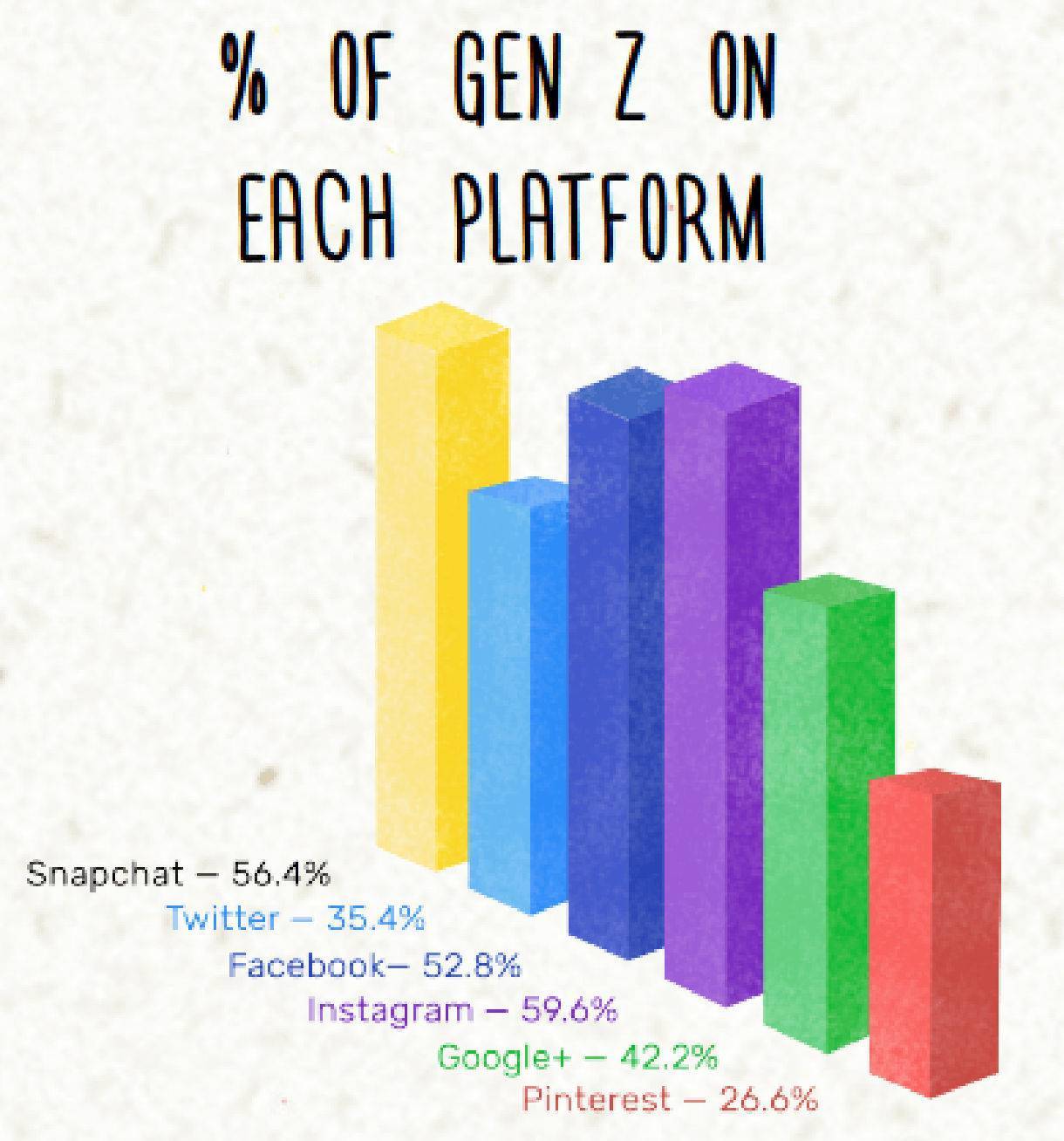
#3 Snapchat and Instagram are the premiere social media platforms.
Instagram was the most widely used social media platform; 60% of 13-17 year olds are active users. Snapchat was a close second with 56% adoption. While Instagram marketing is common, brands continue to be wary of Snapchat. Still, businesses looking to reach this demographic should be on Snapchat if they intend to effectively engage this audience.
#4 Technology brands tend to be the most popular.
YouTube, Netflix, and Google were the three brands ranked as the “most cool” by survey respondents. Traditional brands like The Wall Street Journal, Sprint, and Honda all ranked as less cool. This is perhaps unsurprising, considering teens are earlier adopters of new technology and social platforms. They’re more likely to find “cool” the brands their parents aren’t as familiar with.
#5 iPhones are popular but don’t have a monopoly.
Smartphone ownership by Generation Z is almost ubiquitous, but their choice of operating system varies. Although many marketers equate teens with Apple and iPhone-loyalty, almost as many teens have Android smartphones as iPhones. Females are slightly more likely to have an iPhone, but males are more likely to have an Android smartphone. This is critical for marketers working on app or web platforms. By not treating Android users with the same level of QA as iPhone users, you might be missing out on a big opportunity.
#6 Looks matter.
Clothes and fashion are still important. Although teens increasingly mention individualism as important, fashion and beauty rank highly in teens’ perceptions of what’s “cool.” Shoe and cosmetic brands are particularly loved. Businesses--whether in these niches or not--would be keen to remember that function and form are still important to Generation Z.
What does this mean for marketers?
For many brands, building awareness and loyalty among teenagers 13-17 is critical to their current success. However, even brands that don’t target Generation Z as a key audience should begin thinking about them as future audiences.
Many of the strategies and tactics that will work to engage teenagers are simply best practices for digital marketing in general. To best reach this demographic, marketers should:
- Create relevant, quality, and clever content that teenagers want
- Be active and engage on the social platforms that are most relevant
- Make iterative changes based on data and analysis
- Maintain and strong and clear brand, and develop critical brand associations
- Be authentic, ethical, and transparent about the product or service being promoted
Other tactics and channels look different for Generation Z. For this demographic, marketers should keep in mind that
- Email marketing is much less important
- Influencer marketing is far more important
- Different laws and guidelines are in place to protect this demographic
